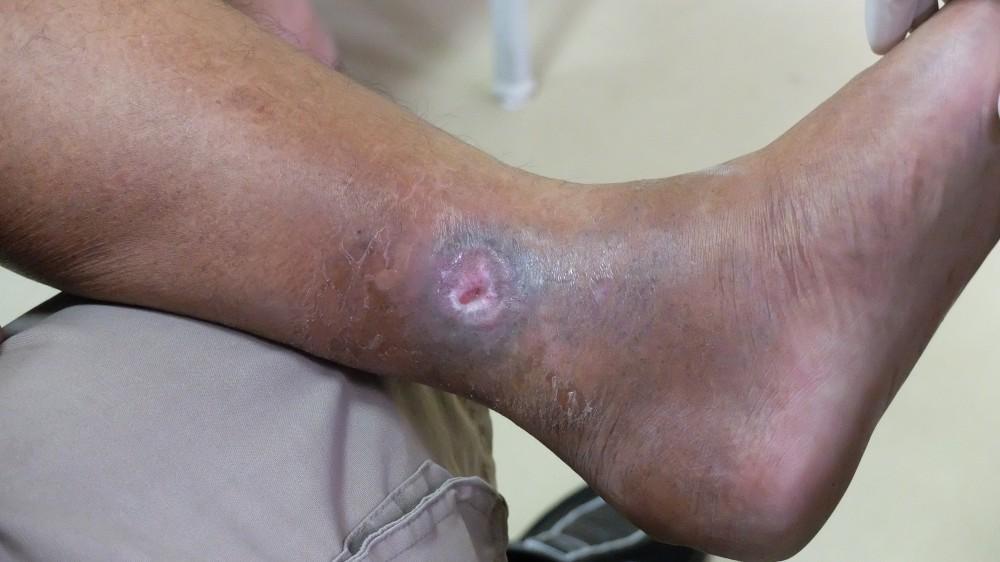
How to Prevent Diabetes-Related Foot Amputation

Foot amputation results in lots of damage to your independence, mobility, and quality of life. It’s also more challenging to stay healthy and active after a lower body amputation. You don’t want this to happen to you.
However, if you’re living with type I or type II diabetes, your risk for foot amputation and limb loss is heightened. That doesn’t mean that foot amputation is inevitable for you, though. Far from it!
At The Foot Care Group of Hinsdale, Libertyville, and the Streeterville community of Chicago, Illinois, you can get the diabetic foot care and treatment you need to keep your feet whole and healthy for years to come. Board-certified podiatrist Dr. Steve Sharlin has the expertise you depend on when it comes to your foot health when you have diabetes.
Diabetes, circulation, and wounds to your feet
Diabetes chronically affects how your body produces or uses the hormone insulin. Without normal insulin levels or function, your blood sugar levels can become and remain dangerously high. This can have several negative implications for your foot health.
One of the reasons why diabetes is so likely to result in problems for your feet is that your lower extremities are a long way away from your heart. And, when it comes to circulation in your feet, the force of gravity is also working against you.
That means that, when your feet suffer from wounds, even very small or minor tears in your skin, you have a higher than typical risk of infection. And, since diabetes also damages your immune system, you can find yourself dealing with slow-healing wounds, open sores, and ulcers on your feet.
At a certain point, due to risk of gangrene, foot amputation can become a sad necessity. You don’t want that to happen to you.
Peripheral neuropathy risks for your feet
It doesn’t help that people with uncontrolled diabetes can lose sensation in the feet and legs. This condition, known as peripheral neuropathy, occurs when chronically high blood sugar results in lasting nerve damage.
You may lose sensation in your feet, becoming insensitive to pain, heat, and cold. That means that, if you sustain an injury to your extremities, you might not even realize you’re hurt. Infection can set in before you know about your injury, increasing your risk of complications including amputation.
Diabetic foot care and you
Diabetic foot care seeks to protect your feet, preventing injuries and addressing infection risks before the situation can worsen. Expert, comprehensive, and regular foot care is your best bet for preventing diabetes-related foot amputation.
At The Foot Care Group, Dr. Sharlin makes sure you completely understand your diabetic foot care plan. You should plan on taking steps like:
- Always wearing socks and shoes to lower your risk of foot and ankle wounds
- Checking your feet carefully for injuries each day
- Washing your feet with warm, but not hot, water and soap daily
- Watching out for issues like calluses, blisters, and ingrown toenails, all potential sources of dangerous infection
- Using strategies like bracing or custom orthotics to redistribute pressure on your feet and lower legs
If you have a foot wound, Dr. Sharlin can clear away dead tissue to promote healing and prevent the need for amputation. Depending on how far dead tissue reaches in your foot, you may need surgery to allow Dr. Sharlin to completely remove it and clear the area. Surgery is invasive, and requires recovery time, but is still much less drastic than foot amputation.
For the support you need for diabetes-related foot concerns, contact Dr. Sharlin at The Foot Care Group online or over the phone today to schedule an appointment now.
You Might Also Enjoy...


Can Hammertoes Be Corrected with Orthotics?

Can Cryotherapy Get Rid of My Plantar Warts?

I'm Embarrassed About My Toenail Fungus: What Can Help?

5 Bothersome Complications of Untreated Hammertoe

